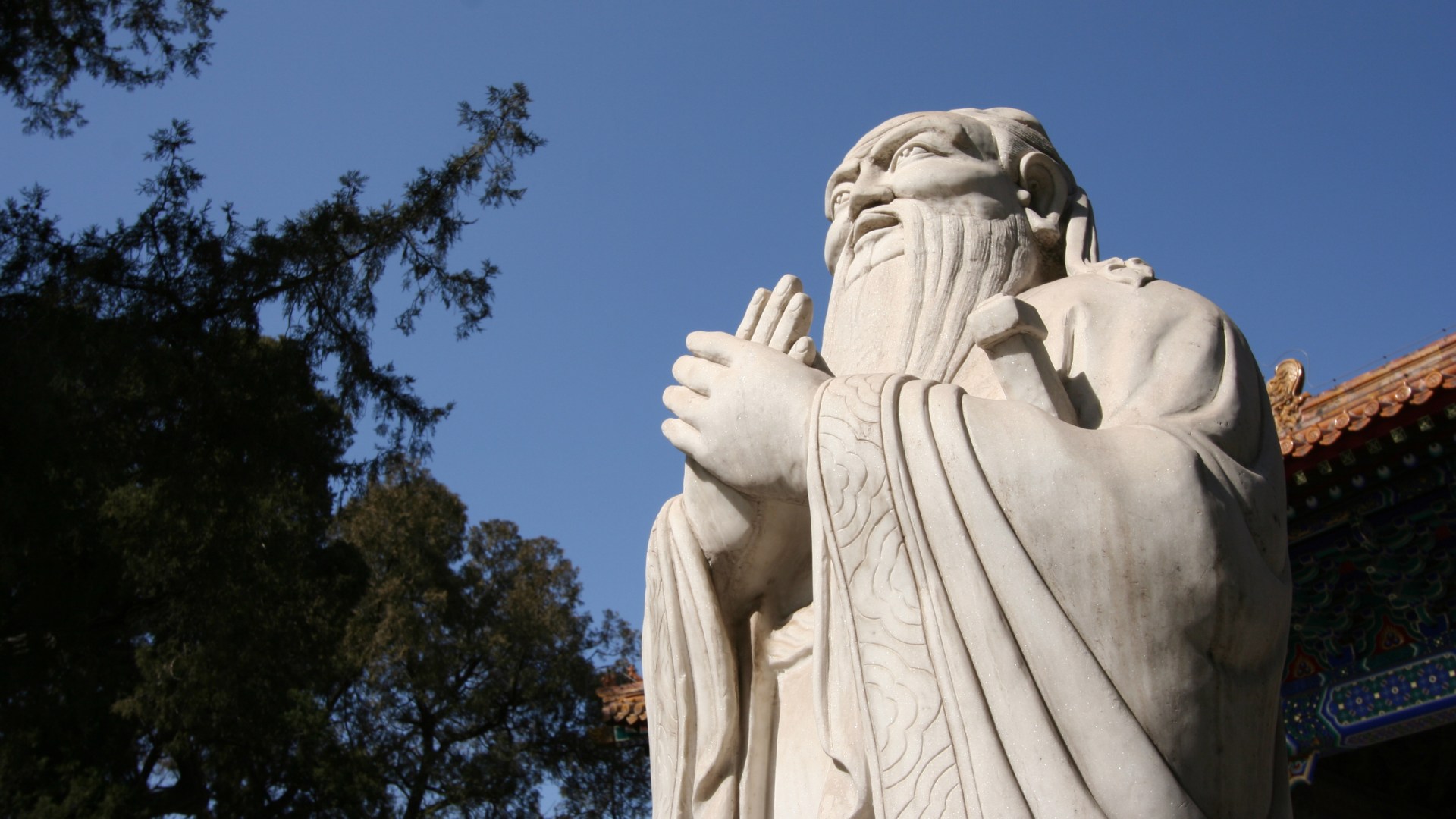Evangelicals are sometimes suspicious of Eastern philosophy, viewing it as a major worldview competitor to Christianity. Gregg Ten Elshof, professor of philosophy at Biola University, wants to push back against this mentality, at least when it comes to the most prominent Chinese philosopher in history. In Confucius for Christians: What an Ancient Chinese Worldview Can Teach Us about Life in Christ (Eerdmans), Ten Elshof examines how the Confucian tradition can shed new light on Christian theology and moral teachings. Derek Rishmawy, who pastors students and young adults in California, spoke with Ten Elshof about the book.
Confucius for Christians: What and Ancient Chinese Worldview Can Teach Us about Life in Christ
Eerdmans
110 pages
$14.85
What kind of belief system is Confucianism? And why should Christians pay attention?
It’s a matter of some serious, academic controversy whether Confucianism is a religion, like Islam, or more of a philosophy, like Stoicism or Aristotelianism. Religion or not, it’s one of the great wisdom traditions on life’s big questions. It studies the road to flourishing in personal, interpersonal, and political contexts, and how to locate yourself in the world. Since it’s been deeply formative for much of human history, it warrants careful attention.
What distinguishes Confucius from Aristotle?
The similarities outstrip the differences. They were both interested in the formation of good people, but both opposed a codified list for right behavior. From the good person, good behavior will come naturally. Confucius, though, is clearer on the distinction between moral goodness and a “well-styled” life. Aristotle discusses various moral virtues, but Confucius envisions a life that attractively and fully expresses human capabilities, including moral virtues.
You highlight Confucian insights that can sharpen Christian faithfulness. Which one is most urgently relevant for Christians in the modern West?
In a word, it’s relationality. The contemporary West has this standard conception of the person as an autonomous unit, a thing unto himself: We believe ourselves to be free-standing individuals who can choose to enter into relationships to make our lives better.
That is foreign to the Confucian way of thinking. Confucianism highlights the significance of relationships for understanding who we are, our place in the world, what we ought to do, and what the good life looks like. If there’s one place where the Confucian tradition can helpfully correct the contemporary Western mindset, it is here.
How can this emphasis on relationships affect the life of the church?
We often think of the church as a loose collection of autonomous individuals who are there to help each other grow in Christ or do the Christian life better. But we don’t equate belonging to the church with belonging to a family, at least as someone in ancient Near Eastern culture would have understood the family bond. People in that culture wouldn’t have been able to understand themselves, or their place in the world, apart from their families.
We’re grateful for our families, and we wouldn’t be here without them, but we can imagine living apart from them. Indeed, we very often choose to do so. The way we in the West think about family shows up in the way we think about the church. When Jesus (and Paul) call the church to be a family, though, it’s a call to something like the more relationally integrated, Confucian conception of family. You get a much different picture.
The Confucian emphasis on relationality can also help us better understand the dynamic of shame in Scripture. We think primarily in terms of guilt, which is almost inherently individualistic: I can’t be guilty for something you have done. But the category of shame is relational. If we are relationally connected, I can suffer shame for something you have done. Shame is helpful for understanding the social dimensions of the Fall.
Is there something particular about Jesus that reading Confucius has helped you better understand?
I’ve gained a more nuanced view of Jesus’ teachings: his command, for instance, to love our enemies. Before reading Confucius, I thought more or less that loving your enemies is about treating them exactly as you would a friend. Confucius helped me see that even though we should love our enemies, pray for them, and seek their flourishing, treating them identically to friends would be unwise in some circumstances. You might need to protect yourself from enemies, or create some distance, all the while continuing to love and pray for them. I read that injunction (and others) from Jesus with greater nuance and less rigidity than before.











